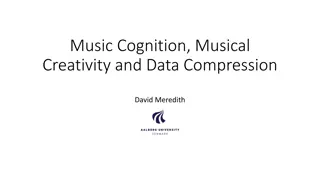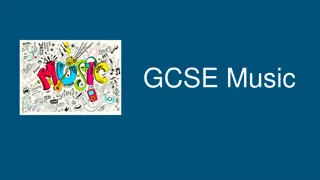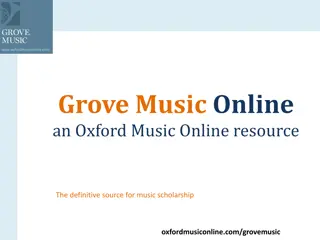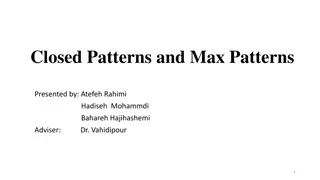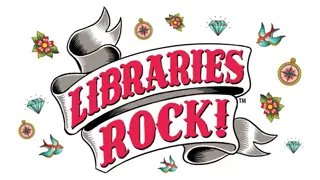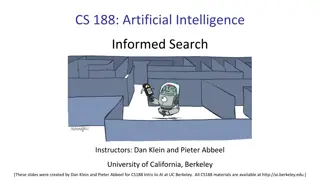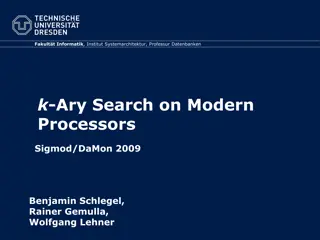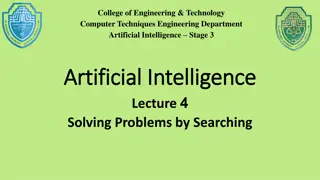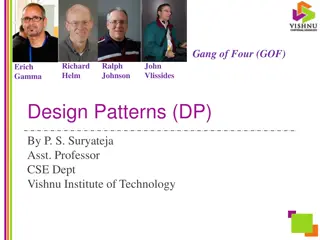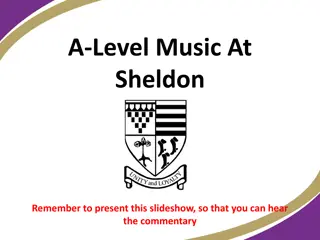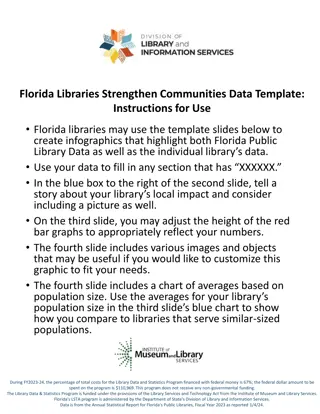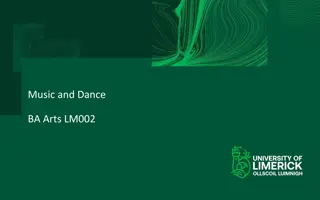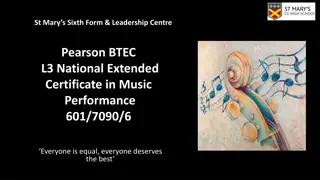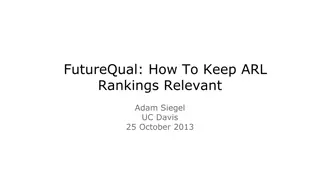Understanding Search Patterns for Music Materials in Libraries
Exploring how students search for music materials using a single search box, this study investigates if the nature of music materials influences search patterns compared to other subjects. It also evaluates the effectiveness of tools like federated search and discovery layers in facilitating searches for music resources. Data points cover search behavior metrics like session frequency, search terms, and types of items sought.
Download Presentation

Please find below an Image/Link to download the presentation.
The content on the website is provided AS IS for your information and personal use only. It may not be sold, licensed, or shared on other websites without obtaining consent from the author. Download presentation by click this link. If you encounter any issues during the download, it is possible that the publisher has removed the file from their server.
E N D
Presentation Transcript
The Black Box How students use a single search box to search for music materials Kirstin Dougan Music and Performing Arts Library University of Illinois at Urbana-Champaign MLA 2017 Orlando, FL
Native interfaces > one box vs. One box native interfaces
Research question Does the nature of music materials lead to quantifiable patterns in how patrons search for them, and does it differ noticeably from searches done in other subjects?
Federated search vs. discovery layer Federated search tools point searchers to other search tools; discovery layers point them to specific items in those tools Bento displays are a hybrid approach that shows short lists of results organized by source
What they are good* at finding Known citations (esp. articles, books, chapters, dissertations, etc.) Works with distinctive titles/single iterations (e.g., one work per recording or score) *Or perhaps better than bad at
Data points Searches per session Search terms per search Use of Boolean, quotation marks, parentheses, etc. Frequency of use of spelling suggestions
Data points, contd Type of thing being sought/searched article/book score/recording journal name topic (just keywords) author/composer/performer etc. (just name)
Data points, contd Search string elements personal name and title keywords title or title keywords (e.g., West Side Story) general topic keywords genre/instrumentation (e.g., trumpet ensembles) work numbers publisher/label names format (score, facsimile, parts, etc.) DOIs
Questions I cant (necessarily) answer Were they looking for a piece of music or information about it? Were they looking for pieces by a composer or information about him/her Did the patron do the right or best search? Did they find what they were looking for?
How many searches/session? 63.2% of sessions have one search string 30.6% sessions have 2-4 search strings 5% of sessions have 5-9 search strings < 1% have 10 or more search strings
Rare searches Title or author index searches (only 207 and 141 of those, respectively) Including edition or label information Spelling change suggestions (just 83) e.g., suggesting Hilary Hahn instead of Hillary Hahn
Unexpected search elements dick farney + booker pittman mendelssohn's violin concerto 777337-2 (REICH: Sextet / Piano Phase / Eight Lines (Griffiths Kevin/ London Steve Reich Ensemble/ The/ Stephen Wallace) (Cpo: 777337-2))
Tricky search elements Doesn t work well Mozart k501 mahler symphony no.9 francesca lebrun sonata in f Worked just fine six quartets for bassoon and strings: opus 1 (recent researches in the music of the classical era)
Search variations french medieval poems medieval minstrel poem french medieval minstrel french medieval minstrel french and occitan medieval minstrel french and occian medieval minstrel and french medieval minstrel french
Why does all of this matter? Helps give us data to confirm our intuition and experiences Helps us advocate for search features in catalogs and discovery layers that other subject areas may not use as frequently Helps us understand where patrons are coming from when they search so we can teach them better
Thank you! Questions? Kirstin Dougan dougan@illinois.edu





